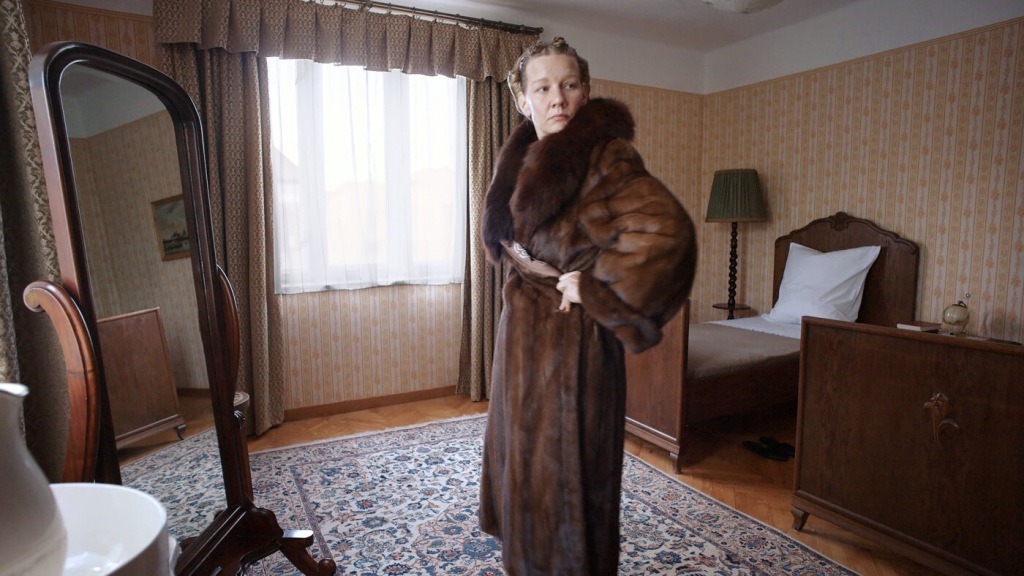
Definitely a film with a difference. Jonathan Glazer takes on the topic of the Holocaust but from the angle of the family of the director of the complex who live in an idyllic house and garden right next door to the camp. He took inspiration from the novel of Martin Amis but has taken things in another direction.
Commandant Rudolf Hoss (Christian Friedel) is a successful and obsessive manager who has made his camp a model in the Nazi system of concentration camps.

Wife Hedwig (Sandra Huller) is a proud homemaker who has transformed her house into a sort of haven with a garden, swimming pool and greenhouse for she, her husband and children. Trouble is that from the house you can hear the screams of prisoners, see the flames of chimneys, smell the burning flesh and find body parts and belongings of those killed inside. Hedwig has coffee mornings with other Nazi wives as they discuss new clothes available (from the victims), her children play with gold teeth extracted from the dead. The evidence of what is happening across the wall is present day and night.

It is a bizarre and horrifying scenario. How can you live next door to a concentration camp and pretend nothing is happening? Some can’t. One daughter can’t sleep properly, the younger son is clearly perturbed and Hedwig’s Muty (Imogen Kogge) lasts a few days before beating a quick retreat to where she came from. Hedwig continues blithely attached to her home and refusing to accompany her husband when he is promoted back to Berlin. She even threatens a maid with having her ashes spread over the land by her husband if she so pleases. There are other chilling scenes: meetings discussing production targets as if it was a car factory when the production is in fact killing people. The big brass in Berlin throw lavish parties as if nothing is amiss.

What Glazer wants us to reflect on here is our capacity to ignore what is happening around us particularly when that something is so cruel and morally wrong. That’s why his speech on receiving the Oscar for Best Foreign Film upset so many people – he accused many of us of looking the other way in regard to today’s tragedies like the crisis in Palestine.

Glazer films the characters at a distance. The same distance they display towards the Jews. It is an interesting technique. He also throws in some unexpected twists: the use of Grimm’s grim fairytales told to calm the frightened daughter, nighttime scenes showing a local girl who planted apples for the prisoners – a real case. Glazer met this woman who died aged 90 before the film came out. He also gives us an updated scene of cleaners preparing the modern-day Auschwitz museum for its daily opening. It is not a film with great action or a plot. It is not meant to be. It is a reflection on our ability to remain unmoved by deeply shocking acts.

Mica Levi’s industrial and haunting music is a plus as is Lukasz Zal’s photography.
A brave thought-provoking work.
4 stars plus